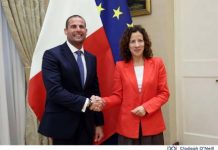The Malta Hotels and Restaurants Association (MHRA) welcomes today’s budget speech, “A Quality Country” (Pajjiz ta Kwalita), as it lays a strong foundation for a resilient economy designed to adapt and thrive amid global changes.
This budget places significant emphasis on social measures while also addressing sustainability, innovation, and infrastructure, which serve as the backbone for strengthening key sectors, particularly tourism.
A resilient economy enhances tourism by creating an environment where quality services, green initiatives, and workforce development can flourish.
This budget introduces substantial funding for sustainable infrastructure, transport and public cleanliness, ensuring that our heritage sites, public spaces, and tourism facilities are not only accessible and attractive but also aligned with eco-friendly practices.
Improvements in critical infrastructure, such as drainage, water services, and energy supply, will be essential in supporting the tourism sector and enhancing the overall visitor experience.
Notably, the Malta Tourism Authority’s budget has been increased to expand marketing efforts in a greater number of source countries. MHRA is pleased to note Government’s commitment towards quality over quantity, but underlines that the increase in the supply of beds also requires that numbers are maintained during this transition. MHRA acknowledges the importance of enhancing connectivity and investing in product improvements, particularly in Valletta, while also supporting investment in upskilling programs. These
initiatives will empower the local workforce to deliver world-class, authentic experiences that meet the rising expectations of global travelers. The Skills Pass will also be vital in ensuring quality personnel from third countries, but it must be managed carefully to prevent inefficiencies and bureaucratic delays that could hinder the recruitment process. The skills pass however needs to be introduced to all other economic sectors to ensure a level playing field.
Effective enforcement will be essential in maintaining high standards across
the tourism sector, ensuring that these initiatives contribute to an improved
standard of living for all.
Furthermore, MHRA welcomes revisions in the wage regulation orders, emphasizing the need for these changes to accurately reflect the realities of the hotel and restaurant business. It is crucial that wage regulations do not create shocks in the restaurant sector; they should be evaluated to consider the unique nature of the industry, which often experiences concentrated activity on weekends. Additionally, the principle of equal pay for work of equal value must account for the nature of temporary workers in this sector.
MHRA commends the government’s commitment to fiscal discipline, and its aim to keep the deficit within the 3.5% mark which is achievable through a forecasted of strong economic growth. MHRA acknowledges that the increased tax bands will leave €140 million in the economy, some of which will undoubtedly be spent in restaurants and hotels.
In conclusion, this budget signals a positive shift toward a more sustainable and vibrant tourism sector, one that enhances the quality of life for our citizens and positions Malta as a leading destination for travelers. As evidenced in the budget, the continued investment in tourism reflects its importance to our economy, with tourism spending steadily increasing. The initiatives outlined will yield long-term benefits, ensuring that the tourism industry can continue to thrive amid global challenges, ultimately enriching our economy and community.
![]()






